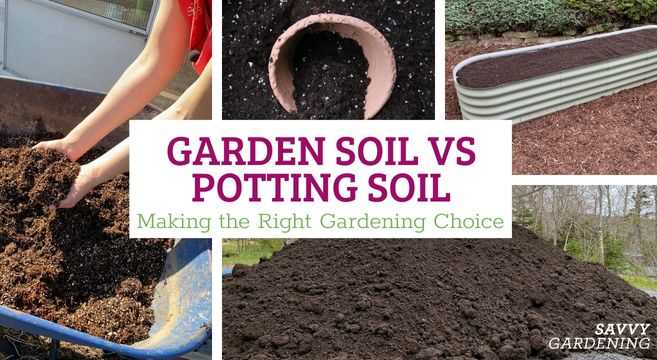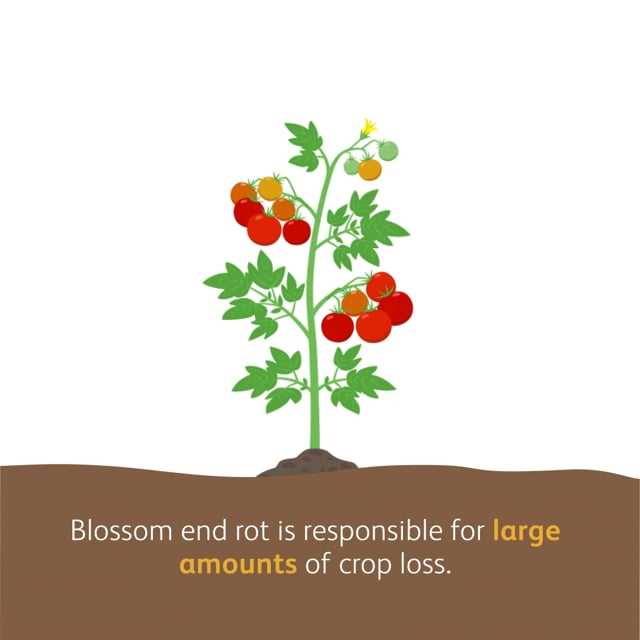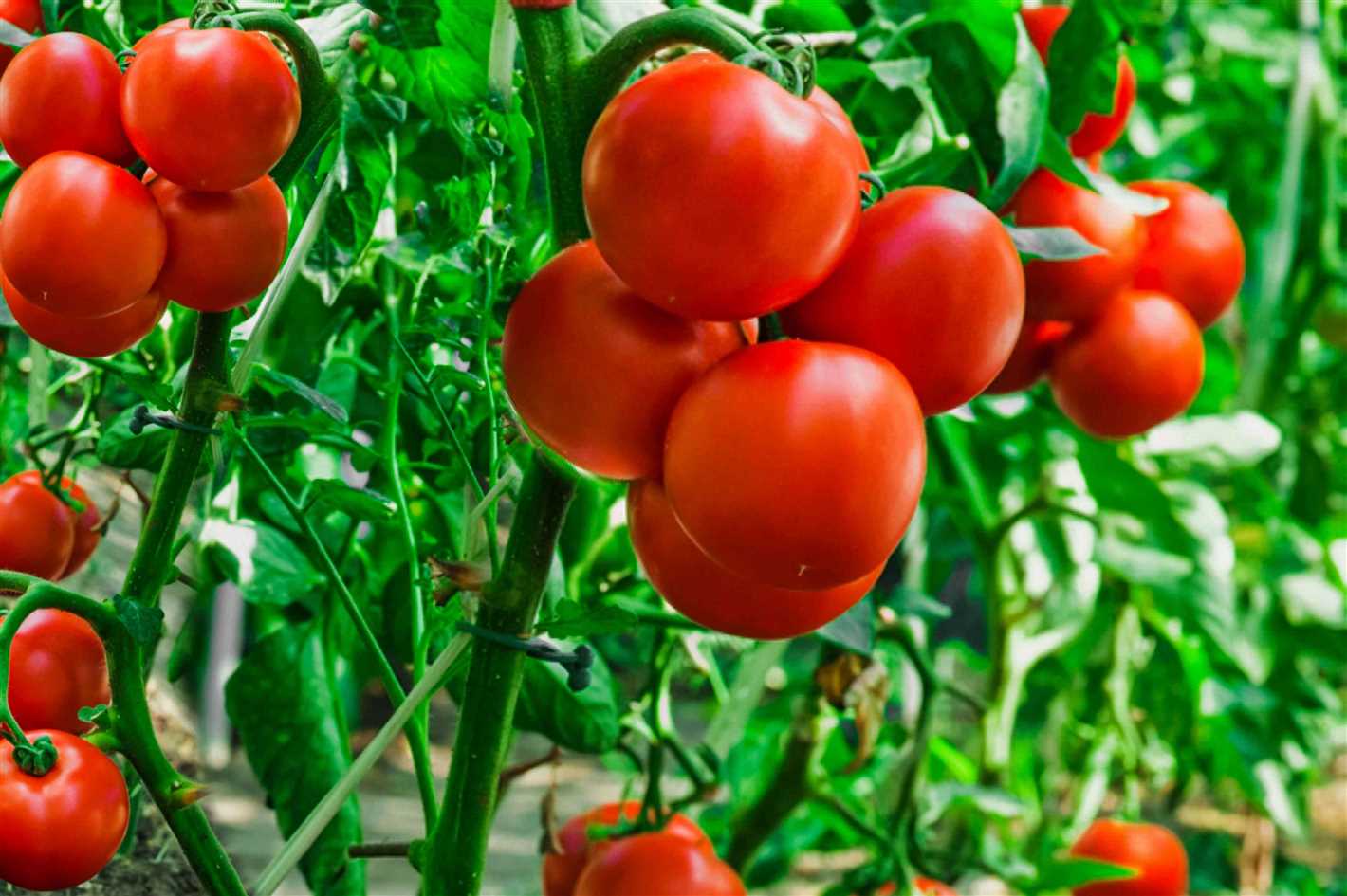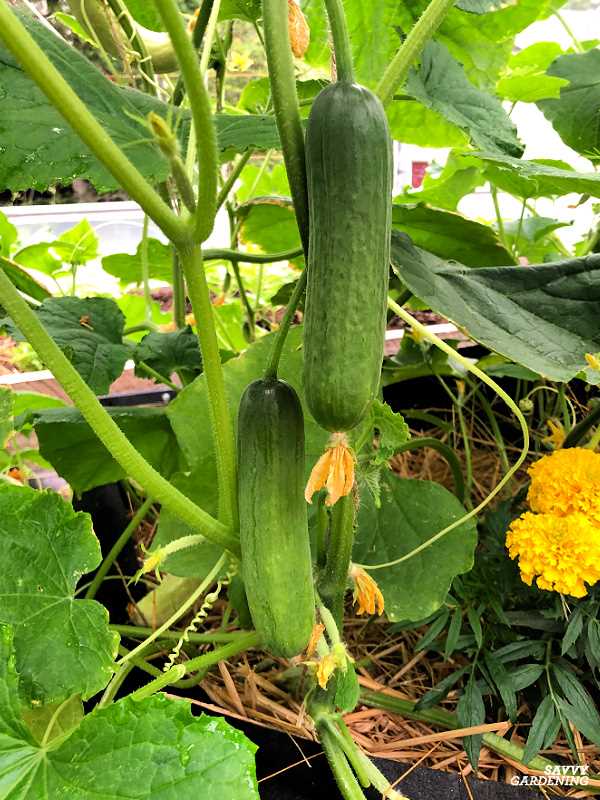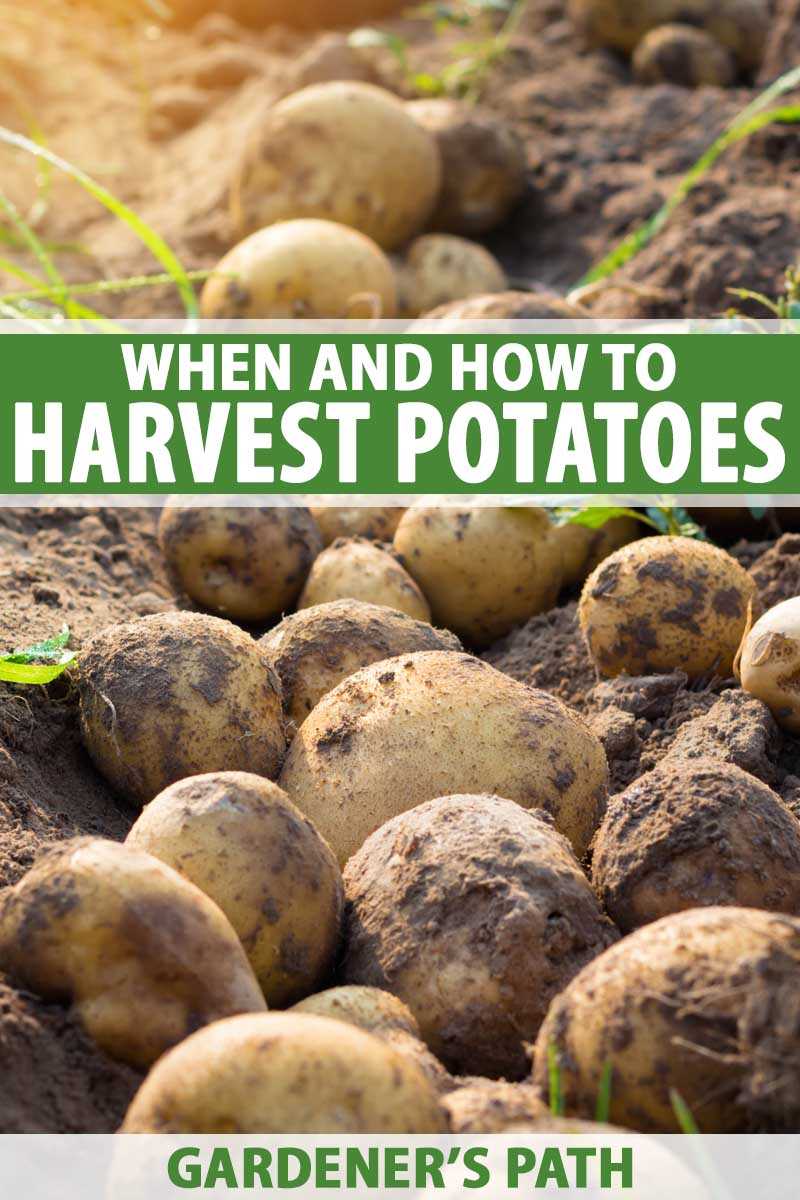- The Benefits of Ammonium Nitrate in Vegetable Gardens
- 1. Nitrogen Source
- 2. Quick-Release Fertilizer
- 3. pH Adjuster
- 4. Versatile Application
- 5. Enhanced Crop Yield
- Improved Nitrogen Levels
- Benefits of Improved Nitrogen Levels:
- Enhanced Plant Growth
- Increased Crop Yields
- Efficient Nutrient Absorption
- Balanced pH Levels
- Disease Prevention
- Weed Control
- Environmental Considerations
- 1. Water Pollution
- 2. Air Pollution
- 3. Soil Degradation
- 4. Impact on Wildlife
- 5. Long-Term Effects
- “Question-Answer”
- What is ammonium nitrate and how is it used in the vegetable garden?
- Is ammonium nitrate safe to use in the vegetable garden?
- Are there any alternatives to ammonium nitrate for fertilizing vegetables?
- How often should I apply ammonium nitrate to my vegetable garden?
- Can ammonium nitrate be used on all types of vegetables?
- Are there any disadvantages or drawbacks to using ammonium nitrate in the vegetable garden?
- Can ammonium nitrate be harmful to humans or pets?
- “Video” Top 6 Worst and 6 Best Garden Fertilizers
Ammonium nitrate is a widely used fertilizer in the vegetable garden due to its numerous benefits and versatile uses. This chemical compound is made up of nitrogen and oxygen and is highly soluble in water, making it easily absorbed by plants.
One of the main benefits of ammonium nitrate is its high nitrogen content. Nitrogen is an essential nutrient for plant growth, playing a key role in the development of leaves, stems, and roots. When applied to the soil, ammonium nitrate provides a readily available source of nitrogen, ensuring that plants have access to this critical nutrient. Additionally, nitrogen promotes lush foliage and vibrant green color in vegetables, enhancing their overall appearance and health.
In addition to its nitrogen content, ammonium nitrate is also an effective fertilizer because it is a fast-acting compound. Unlike some other fertilizers that require time for microorganisms to break them down and release nutrients, ammonium nitrate dissolves quickly and provides instant nourishment to plants. This makes it especially useful for vegetables that have a short growing season or require a quick boost of nutrients.
Ammonium nitrate is also highly versatile in its uses within the vegetable garden. It can be applied as a top dressing, added to irrigation water, or incorporated into the soil before planting. This flexibility allows gardeners to tailor their fertilization methods to the specific needs of different vegetables and optimize nutrient uptake.
In conclusion, ammonium nitrate is a valuable tool for vegetable gardeners, providing essential nitrogen and promoting rapid plant growth. Its fast-acting nature and versatility make it a versatile and effective fertilizer for a wide range of vegetables. However, it’s important to use ammonium nitrate responsibly and in accordance with recommended guidelines to prevent over-fertilization and protect the environment.
The Benefits of Ammonium Nitrate in Vegetable Gardens
Ammonium nitrate is a common fertilizer that contains both nitrogen and ammonium. This combination of nutrients makes it a valuable addition to vegetable gardens, as it can provide a number of benefits.
1. Nitrogen Source
- Ammonium nitrate is a rich source of nitrogen, which is an essential nutrient for plant growth.
- Nitrogen helps plants to develop strong stems, lush green foliage, and promotes overall healthy growth.
- By applying ammonium nitrate to the soil, vegetable plants can efficiently absorb the nitrogen they need for optimal growth.
2. Quick-Release Fertilizer
- Ammonium nitrate is considered a quick-release fertilizer, which means that it is readily available for plant uptake.
- This is beneficial in vegetable gardens, where plants generally have a shorter growing season.
- The quick-release nature of ammonium nitrate allows plants to receive an immediate nutrient boost, stimulating growth and productivity.
3. pH Adjuster
- Ammonium nitrate has a slightly acidic pH, which can help in adjusting the soil pH levels.
- In vegetable gardens, maintaining a proper pH level is crucial for nutrient availability and absorption.
- If the soil pH is too high, the addition of ammonium nitrate can help lower it to a more suitable level for vegetable plant growth.
4. Versatile Application
- Ammonium nitrate can be applied to the soil as a granular fertilizer, making it easy to distribute evenly in the vegetable garden.
- It can also be dissolved in water to create a liquid fertilizer, which can be applied directly to the plants through foliar feeding.
- This versatility allows gardeners to choose the most convenient method of application based on their specific needs.
5. Enhanced Crop Yield
- By providing the necessary nitrogen and ammonium nutrients, ammonium nitrate can significantly enhance the yield of vegetable crops.
- The increased growth and development of plants supported by ammonium nitrate can result in larger and more abundant harvests.
- This makes it an invaluable tool for vegetable gardeners looking to maximize their crop production.
In conclusion, ammonium nitrate offers numerous benefits for vegetable gardens. Its nitrogen content, quick-release nature, pH-adjusting properties, versatile application methods, and ability to enhance crop yield make it an excellent choice for gardeners looking to optimize the growth and productivity of their vegetables.
Improved Nitrogen Levels
One of the main benefits of using ammonium nitrate in the vegetable garden is its ability to improve nitrogen levels in the soil.
Nitrogen is an essential nutrient for plant growth and plays a crucial role in their overall health and productivity. Ammonium nitrate provides plants with a readily available source of nitrogen, making it easier for them to uptake and utilize this vital nutrient.
By applying ammonium nitrate to the soil, gardeners can ensure that their plants have access to an adequate supply of nitrogen throughout the growing season. This can help promote vigorous growth, increase crop yields, and improve the overall quality of the harvested vegetables.
Furthermore, ammonium nitrate is particularly beneficial for nitrogen-demanding plants, such as leafy greens, corn, and tomatoes. These plants have higher nitrogen requirements compared to other crops, and using ammonium nitrate allows gardeners to meet these demands effectively.
However, it is essential to use ammonium nitrate judiciously and follow recommended application rates. Over-application of ammonium nitrate can lead to nitrogen imbalances in the soil and potentially harm both plants and the environment. Therefore, it is crucial to carefully follow product instructions and consult with local gardening experts for guidance on proper usage.
Benefits of Improved Nitrogen Levels:
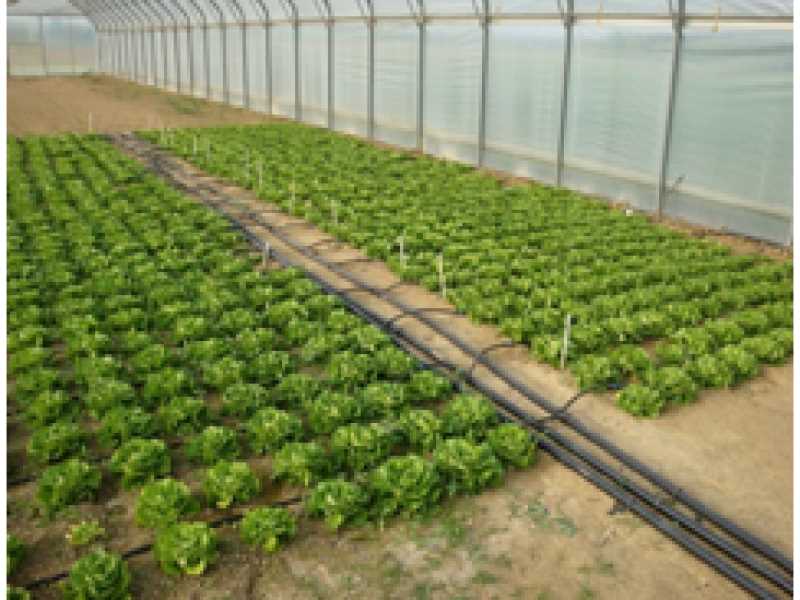
- Increased plant growth and vigor
- Enhanced crop yields
- Improved quality of harvested vegetables
- Increased nitrogen availability for nitrogen-demanding plants
Overall, incorporating ammonium nitrate into the vegetable garden can provide a significant boost to nitrogen levels in the soil, helping plants thrive and produce a bountiful harvest.
Enhanced Plant Growth
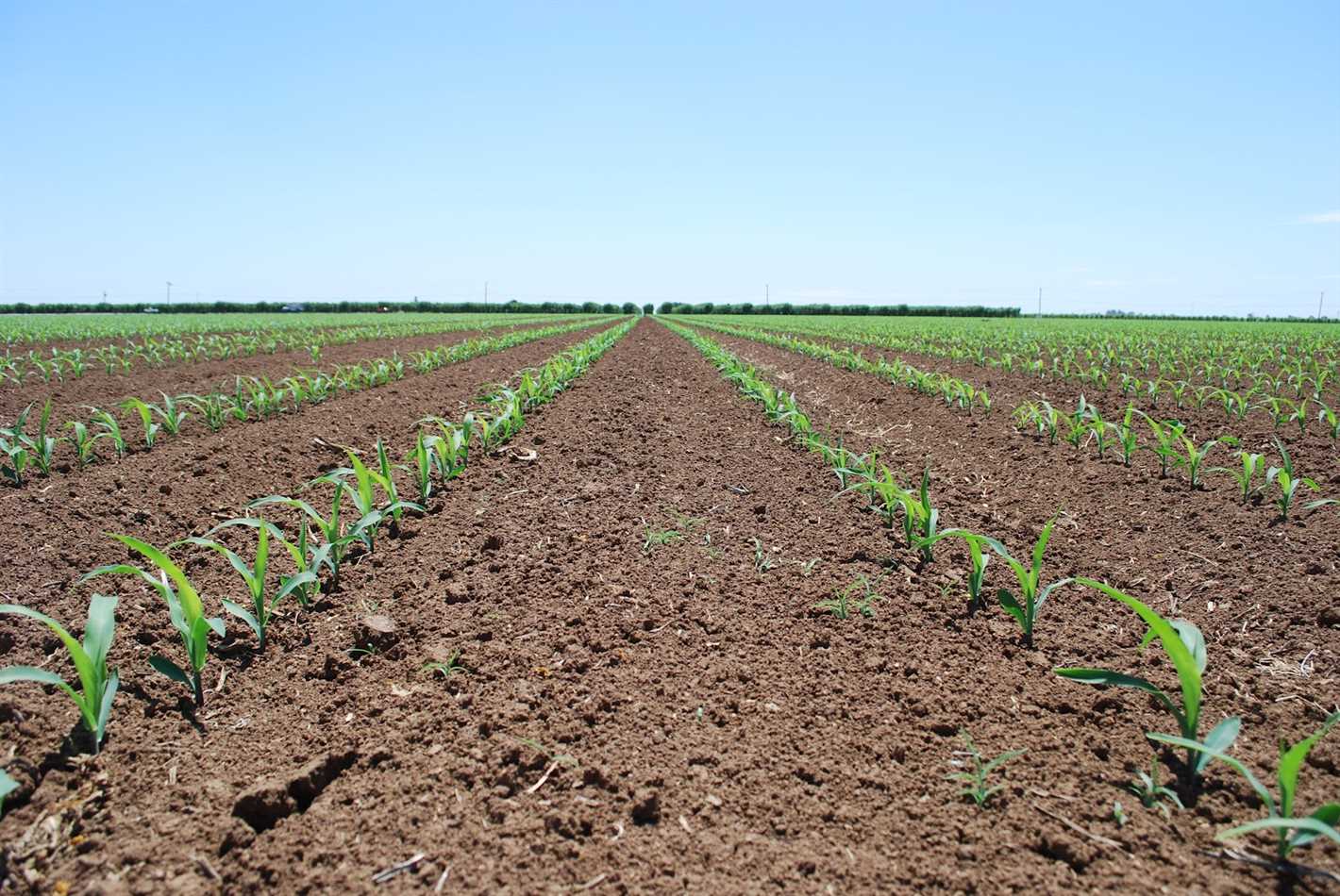
One of the main benefits of using ammonium nitrate in the vegetable garden is its ability to enhance plant growth. Ammonium nitrate provides plants with a readily available source of nitrogen, an essential nutrient for plant growth and development.
Nitrogen is a key component of proteins, enzymes, and chlorophyll, which play crucial roles in plant growth and photosynthesis. When plants have access to sufficient nitrogen, they can produce more proteins and enzymes, leading to healthier and more vigorous growth.
Ammonium nitrate is highly soluble in water, making it easy for plants to absorb. Once applied to the soil, ammonium nitrate quickly dissolves and releases nitrogen, which is then taken up by plant roots.
The availability of nitrogen from ammonium nitrate promotes the growth of leaves, stems, and roots. It helps plants develop a strong root system, allowing them to take in more water and nutrients from the soil. This enhanced root growth also improves the plant’s ability to withstand drought and other environmental stresses.
In addition to promoting vegetative growth, ammonium nitrate also plays a crucial role in flower and fruit development. Nitrogen is necessary for the production of hormones and other compounds that regulate flowering and fruiting. With an adequate supply of nitrogen, plants can produce more flowers and fruits, leading to a higher yield.
It is important to note that while ammonium nitrate provides plants with a quick source of nitrogen, it is important to use it in moderation. Excessive use of ammonium nitrate can lead to nutrient imbalances, environmental pollution, and damage to plant health. It is always recommended to follow the recommended application rates and consult with a gardening expert or soil testing laboratory for specific recommendations.
Increased Crop Yields
The use of ammonium nitrate in the vegetable garden can greatly increase crop yields. This compound is highly soluble in water, making it easy for plants to absorb the necessary nutrients. When ammonium nitrate is applied to the soil, it breaks down into ammonium ions and nitrate ions. These ions are readily available for plant uptake, leading to faster and more efficient nutrient absorption.
The nitrate ions provided by ammonium nitrate are crucial for plant growth and development. Nitrogen is an essential element for plants, and it plays a key role in various biological processes. It is a major component of amino acids, proteins, and chlorophyll, all of which are necessary for plant growth. By providing readily available nitrate ions, ammonium nitrate helps plants to produce more chlorophyll, which in turn increases their ability to convert sunlight into energy through photosynthesis.
In addition to nitrogen, ammonium nitrate also contains ammonium ions. These ions provide the necessary nitrogen for the early stages of plant growth. Ammonium is readily available for plant uptake and can help promote rapid root development and overall plant growth. This leads to stronger, healthier plants that can withstand environmental stressors such as drought or disease.
Furthermore, the balanced ratio of nitrogen to ammonium in ammonium nitrate ensures that plants receive a steady supply of nutrients. This balanced ratio prevents nutrient deficiencies or toxicities that can hinder plant growth and development. By providing the right amount of nutrients in an easily absorbable form, ammonium nitrate helps plants to reach their full potential and produce higher yields.
Overall, the use of ammonium nitrate in the vegetable garden can significantly increase crop yields by providing readily available nitrogen and ammonium ions. This promotes healthy plant growth, faster nutrient absorption, and more efficient energy production. By utilizing this fertilizer, gardeners can achieve bountiful harvests and enjoy the fruits of their labor.
Efficient Nutrient Absorption
Ammonium Nitrate is known for its ability to enhance nutrient absorption in plants. When applied to the soil, it dissolves easily and quickly releases ammonium and nitrate ions, which are the primary sources of nitrogen for plants. These ions are readily available for uptake by plant roots, ensuring efficient nutrient absorption.
One of the key benefits of Ammonium Nitrate is its high solubility. This means that it can be easily dissolved in water, allowing the nutrients to be readily available for plant uptake. When dissolved, the ammonium and nitrate ions can be quickly absorbed by the roots and transported to different parts of the plant.
The ammonium ions are preferentially taken up by the roots and are essential for the formation of amino acids and proteins. They are also involved in regulating pH levels within the plant, which is crucial for proper nutrient absorption and overall plant health.
The nitrate ions, on the other hand, are easily transported in the plant’s vascular system and play a vital role in promoting leaf growth and photosynthesis. They are also involved in the synthesis of nucleic acids and enzymes, which are necessary for various physiological processes in plants.
Furthermore, Ammonium Nitrate provides a balanced source of nitrogen, as it contains both ammonium and nitrate ions. This balanced combination ensures that plants receive a steady supply of nitrogen throughout their growth stages, promoting healthy development and overall productivity.
In addition to enhancing nutrient absorption, Ammonium Nitrate also improves the soil’s overall fertility. The nitrogen provided by Ammonium Nitrate acts as a nutrient source for microorganisms in the soil, stimulating their growth and increasing their activity. These microorganisms play a crucial role in breaking down organic matter and releasing additional nutrients for plant uptake.
Overall, the efficient nutrient absorption provided by Ammonium Nitrate is essential for ensuring optimal plant growth and productivity. Its high solubility and balanced nitrogen content make it a valuable fertilizer in the vegetable garden.
Balanced pH Levels
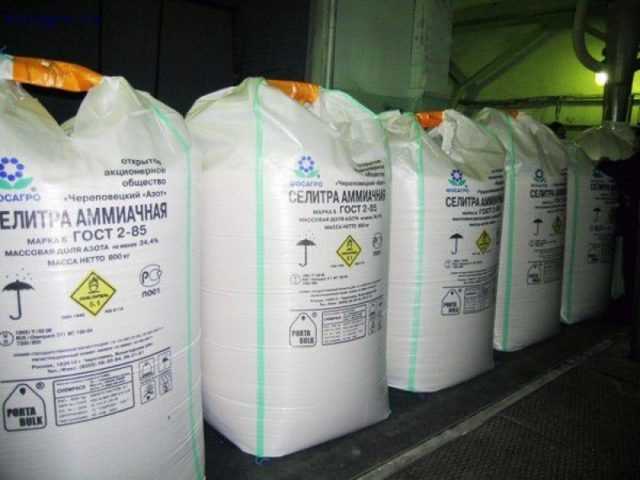
One of the key benefits of using ammonium nitrate in the vegetable garden is its ability to help balance pH levels in the soil. pH levels are a measurement of how acidic or alkaline the soil is, with a pH of 7 considered neutral. Most vegetables prefer a slightly acidic to neutral pH range of 6 to 7.5.
Ammonium nitrate is a compound that can help acidify the soil, making it more suitable for growing vegetables that thrive in acidic conditions. When applied to the soil, ammonium nitrate breaks down and releases ammonium ions, which lower the pH levels. This can be particularly beneficial for vegetables like tomatoes, peppers, and potatoes, which prefer slightly acidic soil.
In addition to helping create the right pH levels for vegetable growth, ammonium nitrate also provides a source of nitrogen for the plants. Nitrogen is an essential nutrient that helps promote healthy leaf and stem growth in vegetables. The combination of balanced pH levels and nitrogen supply can significantly improve the overall health and productivity of the vegetable garden.
It is important to note that while ammonium nitrate can be beneficial for balancing pH levels, it should be used judiciously and with caution. Overapplication of ammonium nitrate can lead to excessive nitrogen buildup and subsequent negative effects on plant health. It is recommended to test the soil pH and nutrient levels regularly and follow the recommended application rates for ammonium nitrate.
Disease Prevention
Using ammonium nitrate in the vegetable garden can help prevent certain diseases that commonly affect plants. By providing the necessary nutrients, ammonium nitrate helps plants grow healthy and strong, making them less susceptible to diseases.
Here are some ways in which ammonium nitrate can contribute to disease prevention:
- Improved Plant Immunity: Ammonium nitrate provides plants with a balanced supply of essential nutrients, including nitrogen. Nitrogen is responsible for promoting healthy leaf and stem growth, which in turn helps plants develop a stronger immune system. Stronger plants are better equipped to fight off diseases caused by pathogens.
- Enhanced Root Development: Ammonium nitrate contains essential nutrients that help stimulate root growth. When plants have a robust root system, they are better able to absorb water and nutrients from the soil. This improved nutrient uptake can prevent nutrient deficiencies, which can make plants more susceptible to diseases.
- Increased Resistance to Fungal Diseases: Fungal diseases, such as powdery mildew and leaf spot, can be a common problem in vegetable gardens. Ammonium nitrate can help prevent these diseases by creating an unfavorable environment for fungal growth. Nitrogen-rich soil promotes quick drying of plant surfaces, making it difficult for fungi to thrive.
Note: While ammonium nitrate can contribute to disease prevention, it is important to use it responsibly and follow proper application guidelines. Overuse or misuse of ammonium nitrate can have negative effects on plant health and the environment.
Weed Control
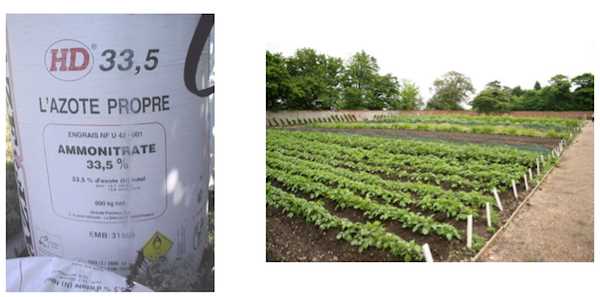
Weeds are one of the biggest challenges faced by vegetable gardeners. They compete with crops for water, nutrients, and sunlight, which can severely impact their growth and yield. Ammonium nitrate can be used as an effective tool for weed control in the vegetable garden.
Pre-Emergent Weed Control:
One of the benefits of using ammonium nitrate is its ability to control weeds before they emerge. Pre-emergent weed control is crucial in preventing weed seeds from germinating and establishing themselves in the garden.
Ammonium nitrate can be applied as a granular fertilizer or dissolved in water and sprayed onto the soil surface. The nitrogen in ammonium nitrate inhibits the growth of weed seeds, preventing them from sprouting and competing with vegetables.
Post-Emergent Weed Control:
Ammonium nitrate can also be used for post-emergent weed control. By directly applying a concentrated solution of ammonium nitrate onto established weeds, the nitrogen in the fertilizer can act as a herbicide and kill the weeds.
When using ammonium nitrate for post-emergent weed control, it’s important to be careful not to apply it too close to the vegetable plants, as it can damage their roots. It’s best to use a targeted application method, such as spot spraying or carefully applying the solution directly onto the leaves of the weeds.
Preventing Weed Seeds:
In addition to its direct weed-killing properties, ammonium nitrate can also help prevent the spread of weed seeds in the vegetable garden. When used as a fertilizer, ammonium nitrate promotes the healthy growth of vegetable plants, creating a dense canopy that shades the soil and prevents weed seeds from germinating.
Considerations:
While ammonium nitrate can be an effective tool for weed control, it’s important to use it responsibly and follow the recommended application rates. Applying too much ammonium nitrate can lead to excessive nitrogen levels in the soil, which can harm vegetable plants and contribute to environmental pollution. It’s always a good idea to test the soil and consult with a local agricultural extension office or gardening expert before applying any fertilizers to your vegetable garden.
Overall, ammonium nitrate can be a valuable asset in the vegetable garden for controlling weeds and promoting healthy crop growth. With proper application and monitoring, it can help you maintain a weed-free and productive garden.
Environmental Considerations
While ammonium nitrate provides several benefits in the vegetable garden, it is important to consider its potential impact on the environment. Here are some key environmental considerations:
1. Water Pollution
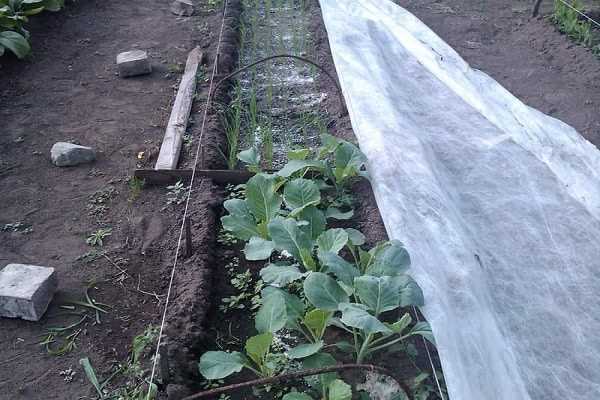
Excessive use or improper disposal of ammonium nitrate can lead to water pollution. When ammonium nitrate is applied in large quantities and not fully absorbed by plants, rainwater or irrigation can cause it to leach into nearby water sources. This can result in an increase in nitrate levels, leading to eutrophication, algal blooms, and a decrease in water quality.
2. Air Pollution
The application of ammonium nitrate can also contribute to air pollution. When ammonium nitrate is used as a foliar spray or applied in high concentrations, it can release nitrogen dioxide (NO2) gases into the atmosphere. Nitrogen dioxide is a greenhouse gas and a major contributor to air pollution, contributing to the formation of smog and respiratory issues in humans and animals.
3. Soil Degradation

Excessive or frequent use of ammonium nitrate can lead to soil degradation. Continuous use of ammonium nitrate can negatively impact soil health by reducing beneficial soil organisms, depleting organic matter, and increasing soil acidity. This can result in decreased soil fertility, reduced water retention capacity, and increased erosion.
4. Impact on Wildlife
Ammonium nitrate can have a detrimental effect on wildlife when handled improperly. If accidentally spilled or misused, ammonium nitrate can lead to poisoning of animals that come into contact with contaminated soil or water. Additionally, runoff from agricultural fields treated with ammonium nitrate can contaminate surrounding habitats and disrupt the natural balance of ecosystems.
5. Long-Term Effects
Over-reliance on ammonium nitrate over the long term can have cumulative negative effects on the environment. Prolonged use of synthetic fertilizers, including ammonium nitrate, can lead to nutrient imbalances in the soil, such as excessive nitrogen levels. This can disrupt natural nutrient cycles and have long-lasting ecological consequences.
It is important for gardeners and farmers to be aware of these environmental considerations when using ammonium nitrate and to apply it responsibly, following recommended application rates and timing. Exploring alternative, more sustainable fertilization methods, such as organic fertilizers or composting, can also help mitigate these environmental concerns.
“Question-Answer”
What is ammonium nitrate and how is it used in the vegetable garden?
Ammonium nitrate is a chemical compound with the formula NH4NO3. It is commonly used as a high-nitrogen fertilizer in the vegetable garden. It provides plants with the essential nutrient nitrogen, promoting healthy growth and increased fruit and vegetable production.
Is ammonium nitrate safe to use in the vegetable garden?
While ammonium nitrate is an effective fertilizer, it should be used with caution in the vegetable garden. It is a highly reactive compound and can be dangerous if not handled properly. It is important to follow the recommended application rates and safety guidelines to ensure the safety of both the gardener and the environment.
Are there any alternatives to ammonium nitrate for fertilizing vegetables?
Yes, there are several alternatives to ammonium nitrate for fertilizing vegetables. Organic fertilizers such as compost, manure, and bone meal can provide a rich source of nutrients for plants. Additionally, there are commercial fertilizers available that are specifically formulated for vegetable gardens and contain a balanced blend of nutrients.
How often should I apply ammonium nitrate to my vegetable garden?
The frequency of ammonium nitrate application depends on the specific needs of your plants and the soil conditions. As a general guideline, it is recommended to apply ammonium nitrate every 4-6 weeks during the growing season. However, it is important to monitor the health and growth of your plants and adjust the frequency of application accordingly.
Can ammonium nitrate be used on all types of vegetables?
Ammonium nitrate can be used on most types of vegetables, as it provides the essential nutrient nitrogen that is needed for plant growth. However, it is recommended to conduct a soil test to determine the specific nutrient needs of your soil and adjust the fertilizer application accordingly. Some vegetables may require additional nutrients or different fertilizers to thrive.
Are there any disadvantages or drawbacks to using ammonium nitrate in the vegetable garden?
While ammonium nitrate is an effective fertilizer, there are some potential disadvantages and drawbacks to consider. It is a highly soluble compound, which means it can leach into groundwater and contribute to water pollution if not used properly. Additionally, excessive use of ammonium nitrate can lead to nutrient imbalances in the soil and can harm beneficial soil organisms.
Can ammonium nitrate be harmful to humans or pets?
Ammonium nitrate can be harmful to humans and pets if ingested or inhaled in large quantities. It is important to store and handle ammonium nitrate safely, following the recommended safety guidelines. Keep it out of reach of children and pets, and avoid inhaling the dust or getting it in contact with the skin or eyes. If ingested, seek medical attention immediately.
